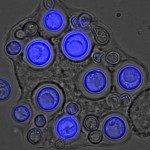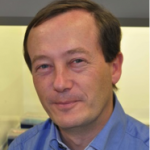Lien vers Pubmed [PMID] – 24483780
Clin. Microbiol. Infect. 2014 Apr;20 Suppl 3:47-75
The aetiological agents of many invasive fungal infections are saprobes and opportunistic pathogens. Some of these fungi are darkly pigmented due to melanin production and traditionally have been named ‘dematiaceous’. The melanized fungi cause a wide array of clinical syndromes ranging from superficial to deep-seated infections. Diagnosis relies on histopathological examination of clinical specimens and on examination of cultures. Sequencing is recommended for accurate species identification, especially for unusual or newly described pathogens. In cases of mycetoma and chromoblastomycosis, pathognomonic histological findings are useful and the Fontana-Masson stain, specific for melanin, usually confirms the diagnosis. There are no standardized therapies but voriconazole, posaconazole and itraconazole demonstrate the most consistent in vitro activity against this group of fungi. Oral itraconazole has been considered the drug of choice, given the extensive clinical experience with this drug. However, voriconazole may presumably be superior for central nervous system infections because of its ability to achieve good levels in the cerebrospinal fluid. Posaconazole is a well-tolerated alternative drug, backed by less clinical experience but with excellent salvage treatment results after failure of other antifungals. Amphotericin B has been useful as alternative therapy in some cases. Combination antifungal therapy is recommended for cerebral abscesses when surgery is not possible and for disseminated infections in immunocompromised patients.

